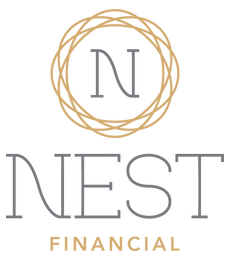It’s no secret that certain financial entities such as hedge funds play by a different set of rules and have access to different investment opportunities than the average retail investor. However, it might be less well-known that individuals can have a seat at these tables, too – if they meet the requirements to be an “accredited investor.”
To be frank, in order to be considered an accredited investor you generally need to earn a lot of money. But as political and economic landscapes evolve, the definition of who qualifies as an accredited investor shifts with them.
Last month, for example, the House Financial Services Committee proposed legislation that would expand the definition of who qualifies as an accredited investor. The Equal Opportunity for All Investors Act of 2021 is a bill that proposes the Securities and Exchange Commission (SEC) creates an exam that anyone with investment knowledge and expertise can take. If they pass, they would earn the qualification of an accredited investor.
This bill takes one step further than a 2020 amendment to the definition, which moved to include investors with certain training and certifications in the accredited investor classification. The proposed exam would ensure that anyone certified as an accredited investor through the test would understand the high risk involved in the opportunities available to this class of investors. In other financial news, there’s also recent buzz that suggests the income thresholds for accredited investors could be raised soon by the SEC as well.
While these stipulations may be adjusted in the coming year, let’s take a look at the current requirements to achieve “accredited investor” status.
So – what is an accredited investor?
To be considered an accredited investor in the US one must have a net worth of at least $1 million (excluding the value of their primary residence).
Alternatively, one can have at least $200,000 worth of income each year for the last two years – or $300,000 combined if married – and expect to make the same amount or more this year.
Other entities that are considered “accredited investors” include:
- A corporation, partnership, or charitable organization with assets exceeding $5 million
- A bank, insurance company, registered investment company, or business development company
- An employee benefit plan if the plan has total assets exceeding $5 million or a bank or registered investment advisor makes the investment decisions
- A director, executive officer, or general partner of the company selling securities
- A business in which all the equity owners are accredited investors
- A trust with assets that exceed $5 million
- Investors who obtain specific measures of professional knowledge, experience or certifications — including holding certain Financial Industry Regulatory Authority licenses
- The complete and official definition of “Accredited Investor” is found in Rule 501 of Regulation D under the Securities Act of 1933, available here.
While the SEC determines the qualifications for accredited investors, you don’t have to wait around for them to send you a certificate in the mail. Instead, the onus is on the companies who are issuing securities to verify your status as an accredited investor before they sell anything to you.

Benefits and Risks
The major perk of this status is that accredited investors are able to invest in securities that are not registered with the SEC. Some companies and private funds don’t have to register investments if they sell these assets exclusively to accredited investors, which saves them time and fees.
Examples of the lucrative opportunities that accredited investors can invest their money into include private equity, private placements, hedge funds, venture capital, and equity crowdfunding. This access to unique investment opportunities can yield high returns and increase the diversification of an individual’s portfolio.
As with all high reward scenarios, there is high risk associated with the world that is opened up to accredited investors. In addition to an increased risk, there’s also high minimum investment amounts, high fees, and illiquidity of investments to contend with – and for individuals who earn more than $1 million, long-term capital gains tax may be applied to their earnings as well.
Mitigate impact and maximize returns
The SEC assumes that anyone who qualifies as an accredited investor is a savvy, sophisticated investor who “knows better” and is prepared for the risk and circumstances surrounding the advanced investment opportunities available to them. This isn’t always the case, however, especially if someone only recently fits this category and does not have a lot of prior investing experience.
Some things you can keep in mind as an accredited investor pursuing these new and exclusive opportunities are to start small, and always ensure that you are fully aware of the details of an investment before committing to it.
But the complex, sophisticated decisions that an accredited investor must make to fully take advantage of being in this category most likely requires a high-level, deep knowledge of the financial sector, which is impossible to develop without years of experience and training.
Luckily, at NEST Financial our experts have the experience, education, and passion to help you navigate the world of off-market, institutional caliber investments available to you as an accredited investor. Schedule an initial consultation by reaching out at info@nestfinancial.net, and let our team guide you through these opportunities, reducing risk and negative impact and maximizing returns and opportunity.
Find us on:
LinkedIn Facebook Yelp Twitter
DISCLAIMER: We are legally obligated to remind you that the information and opinions shared in this article are for educational purposes only and are not financial planning or investment advice. For guidance about your unique goals, drop us a line at info@nestfinancial.net.






[…] are many ways to invest, especially for an accredited investor. There are a few different ways to verify that you’re an accredited investor, but generally […]